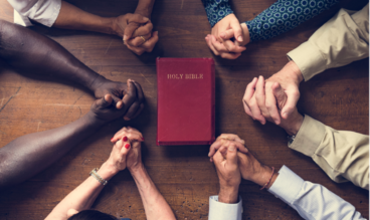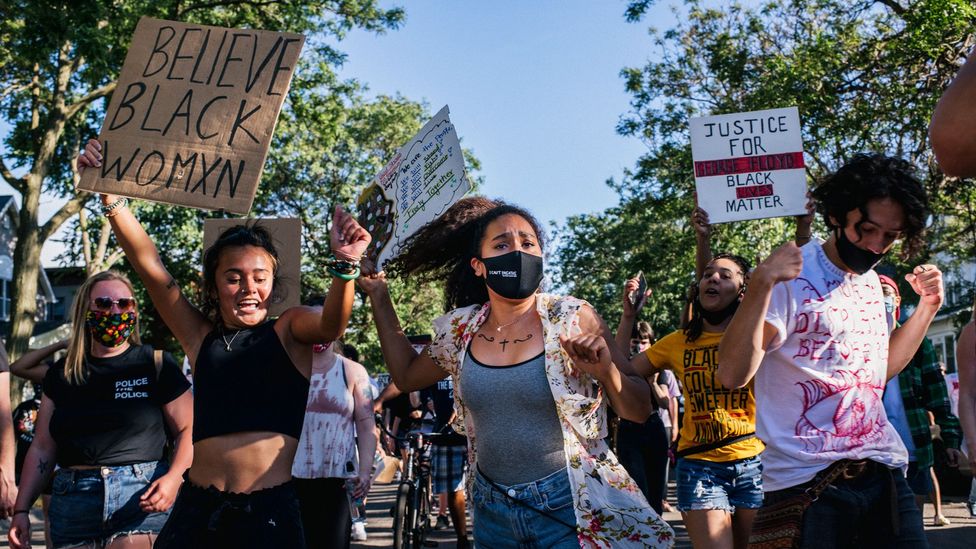Newsletter Vol. 1 Issue 35
-
 April 28, 2021
April 28, 2021
Photo credit: Outreach Magazine
Read Ahead: John 20:18-23Antiracism is a Ministry of Peace and Reconciliation
I imagine I am a disciple in the locked room with the others. Having prayed last week with false narratives about Jesus and about racism, I ask if I have any fears about my experience. If so, I reflect on what might cause me to be afraid, like the disciples who knew that people do not believe their experience. If not, I ask the other disciples what they might be afraid of: what scares them about how they understand the death of Jesus?
I recall the joy Mary Magdalene must have felt when she found out that Jesus is alive. What does she say to me and the rest of the disciples gathered? What does she report about her encounter with Jesus, the one who called her by name?
Jesus appears among us. How does he appear? What does he look like? I look at his hands and side. What do they look like? What does he say to us as he does so? What is my reaction? What do I say to him?
Jesus says to us twice, “Peace be with you.” What does this feel like? Do I feel peace? How does Jesus bring peace into my own life? What does it feel like to have him breathe on me personally, to tell me “receive the Holy Spirit?” When have I experienced the Holy Spirit through him?
Jesus invites me to participate in one of his central missions: the ministry of reconciliation. He invites me to see the world through a lens of forgiveness, not retainment of broken relationships. In what ways does he call me to cultivate forgiveness so we can truly be at peace with one another? Where is this difficult for me?
Jesus and I enter into a conversation directly about racism today. Jesus invites me to see that where there is racism, there is no peace. He recalls his central mission, declared to his hometown in Nazareth:
“The Spirit of the Lord is upon me,
because he has anointed me
to bring glad tidings to the poor.
He has sent me to proclaim liberty to captives
and recovery of sight to the blind,
to let the oppressed go free,
and to proclaim a year acceptable to the Lord.”
Antiracism, he says, is the work of recovery of sight and liberation for all who have adopted false narratives about our differences. It is about proclaiming not just a year but all are acceptable to God because all are made in the image and likeness of God, and all are known by God in their mother’s wombs.
I recall those truths about myself: that I am made in the image and likeness of God and known by God even before I am born. I pause and recall how God makes all of us in God’s image.
I receive the Holy Spirit from Jesus, the same spirit that propelled him to proclaim all are included in the kingdom of God. Jesus invites me into his ministry of reconciliation and peace, his ministry of antiracism. I pray with the examples given so far – reconciliation ministries with Indigenous and Black communities and Jesuit ministries as well as Jesuits West CORE. Does the Spirit of God invite me into deeper learning, relationship, or engagement with these?
Where might I feel drawn?Resource: Companions in a Mission of Reconciliation and Justice

Decree 1 of the General Congregation of the Society of Jesus, 2016. This document invites all of us across Jesuit and Ignatian ministries to pray with how Christ is calling us to enter more deeply into the ministry of reconciliation and justice today.Questions for Reflection:
How am I called to do the work of peacebuilding for racial justice? Does this make me feel fearful or at ease?
How has my understanding of the ministry of reconciliation changed or stayed the same?
How have I already been a companion in the mission of reconciliation and justice? What resonated with me from Decree 1 and where is God calling me to deepen?
